12pm CST / 2pm EDT

A new study by CABA has found that in the UK, adults reach ‘boiling point’ an average of three times per week, a total of 156 times a year
The average adult will then spend 91 hours a year trying to cool off, taking 35 minutes at a time to reduce the pressure.
The study, which polled 2,000 consumers across the UK, looks at some of the most common reasons people reach boiling point, as well as the way the body reacts to unbearable amounts of pressure and the techniques people use to release it.
Of those polled, 27% will experience symptoms such as getting hot and sweaty when facing immense pressure, while 25% will start shaking. Almost 50% will come down with a headache, 20% experience a feeling of a physical weight on their shoulders, and 30% suffer with heart palpitations. 1 in 4 want to scream and pull their hair out.
The findings come as part of CABA’s ‘Drop the pressure’ campaign, which aims to highlight and tackle levels of stress, primarily among millennial accountants. Today (Tuesday 12 November) CABA has installed a pop-up venting booth, called ‘The Venting Machine’, in Jubilee Place at Canary Wharf. Pop down have a vent and to learn how to reduce your pressure.
The study found that almost half (45%) of people take out their frustrations on a partner, 14% on their friends, and 1 in 10 said they are unkind to strangers or frontline customer service staff.
Richard Jenkins, psychologist and spokesperson for CABA, said:
“Almost all of us feel some kind of stress or pressure every day, but the fact that the British public are reaching boiling point 3 times a week is a cause for concern and a sign of serious stress.
“The symptoms of building pressure and long-lasting stress have a significant impact on a person’s wellbeing and over a long period can lead to burn out. Recognising when you are reaching ‘boiling point’ is key to making positive changes to managing your mental wellbeing.”
Jobs and workload came out as the biggest causes of a build-up of pressure in modern life, followed by finances and being too self-critical.
But it’s not just the bigger problems causing Brits worry. When pressure gets too much, many can be tipped over the edge by tiny inconveniences.
1 in 5 surveyed have ‘burst’ after a delay on public transport, and 36% have snapped at someone being rude to them. Other things that bring adults to boiling point include technology not working properly (26%), having to keep repeating yourself to someone (25%) and not getting enough sleep (37%).
Despite the negative associations with stress and pressure, nearly 1 in 3 Brits think that they work more productively when they have lots on and are working to demanding deadlines. Of those polled, 50% felt like they deal with stress in a ‘healthy’ way, through things like counting to 10, going for a walk, or forcing a smile.
Top 10 ways to release pressure:
1. Going for a walk
2. Laughing with someone
3. Listening to music
4. Having a cup of tea or coffee
5. Taking some time alone
6. Venting to someone
7. Taking a bath
8. Doing some exercise such as going for a run or playing sport
9. Reading a book
10. Playing with / spending time with a friend
Jenkins added:
“Almost half of those surveyed felt like the reason they couldn’t cope was due to having so much on their mind. This is an issue facing all of society as we all have to juggle more demands on our time.
“However, it’s important to remember that success is not dependent on how busy you are. Individuals need to recognise building pressure and high levels of stress and know how to recognise their personal limit and when to take action. The first step is to talk to someone before it gets too much, be it to a colleague, friend or family member or a trusted professional.”
- Access to the live Masterclass through our free video platform.
- Access to the recorded Masterclass and other recorded Masterclasses for 14 days.
- A 33% OFF Coupon for any future programs.
- Exclusive access to my private Facebook group.
NOUN masterclass (noun)
a class, given by an expert to highly talented students: "Jackie attended a master class for young Entrepreneurs"
She has a loving partner, 2 kids, a dog a cat and her parents are celebrating their 50th wedding anniversary.
Christie loves to share and listen and has helped many people over her career in physio and financial services.





